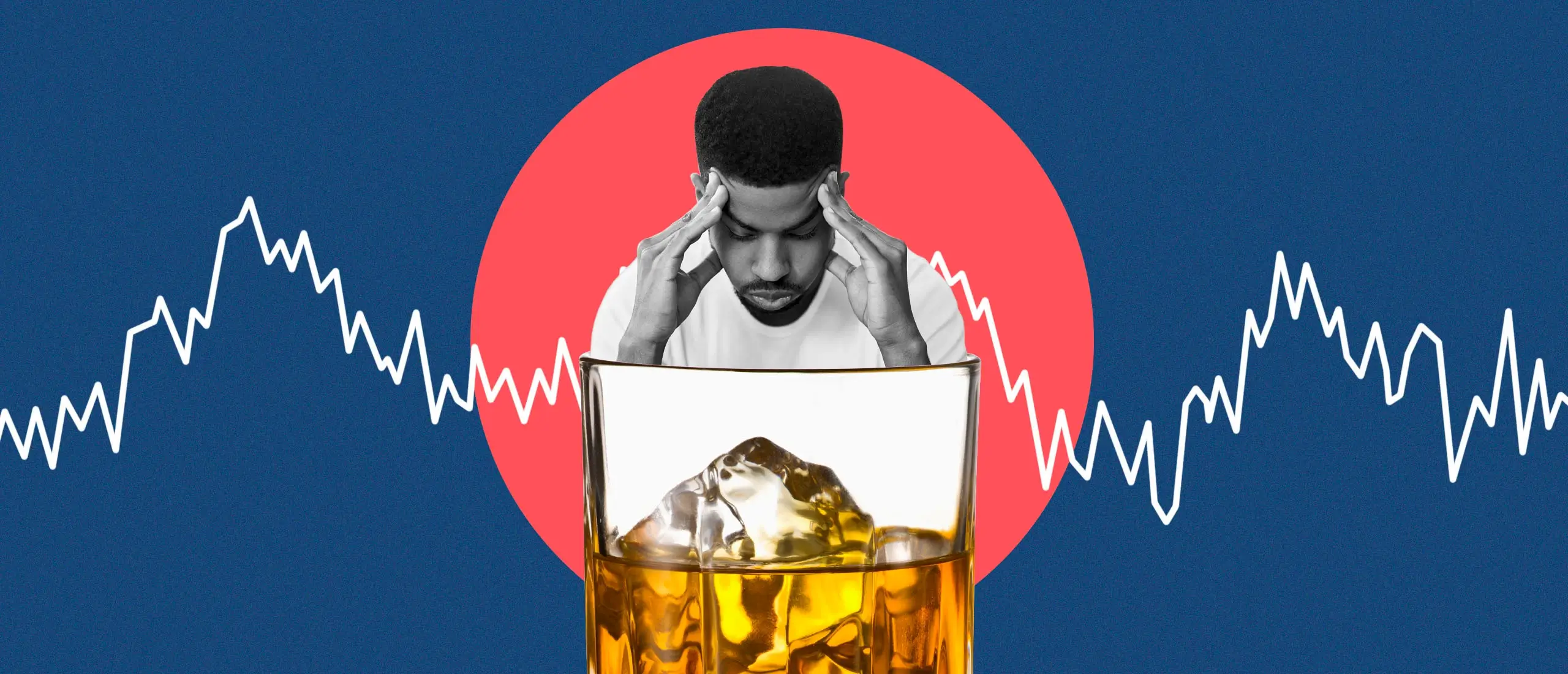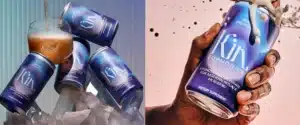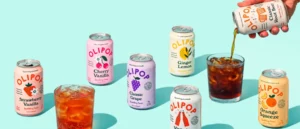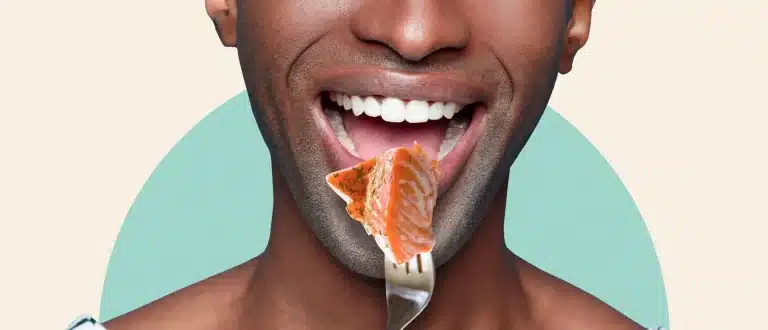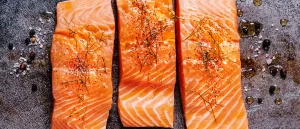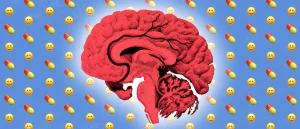Get Anxious After Drinking? Blame Hangxiety
- By Brianna Lapolla
- Fact-checked by Joy Ferguson
- September 21, 2022
Fast Facts
- Alcohol consumption can lead to mental symptoms like anxiety and depression.
- Hangover anxiety (hangxiety) is linked to a disruption in hormone levels.
- Staying hydrated, eating a balanced meal, and cutting back on alcohol consumption can all lessen the effects of day-after-drinking anxiety.
You wake up feeling like you’ve never had a sip of water in your life, your head is pounding, and you’re not sure why you’re even awake. Then the existential angst kicks in. It’s called hangxiety, the feeling of dread that follows a night of heavy(ish) drinking.
The Fear isn’t just from seeing embarrassing photos on social media of the weird shit you did the night before. The comedown could be due to a disruption in your hormone levels, namely serotonin and cortisol (1, 2).
While you probably know how to cure a physical hangover (no judgment), mental recovery is slightly more complex.
What Is Hangxiety?
Hangxiety—the racing thoughts, excess worry, low energy, and general sense of existential dread— is a symptom of mild alcohol withdrawal after a night of imbibing. But unlike physical hangover symptoms, dehydration is not typically identified as a cause of hangxiety—there appear to be actual neurological factors at play (3). Among them:
GABA and Glutamate
Alcohol puts your brain on an emotional rollercoaster in part by acting on two critical neurotransmitters: GABA and glutamate
- GABA: Gamma-aminobutyric acid (GABA) is a neurotransmitter that calms the brain by decreasing the activity of nerve cells. You can thank alcohol’s effect on GABA for that fuzzy, relaxed feeling when you drink. It’s also thought to play a major role in controlling hyperactive brain functions such as anxiety, stress, and fear, which are all symptoms of hangxiety (4).
- Glutamate: Glutamate is a neurotransmitter, essential for normal brain function (5). It excites nerve cells, encouraging them to send signals from one to another, which plays an important role in learning and memory (6).
For GABA and glutamate to function properly, there has to be an appropriate ratio of each to help the nervous system react appropriately. However, excessive drinking can inhibit this function. Studies suggest that alcohol may cause an imbalance between GABA and glutamate, resulting in physical, emotional, and mental health damage (7, 8, 9).
One theory asks you to think of it this way: You start drinking, and alcohol gets to work targeting both GABA (making you feel instantly relaxed) and glutamate (further dialing down anxiety). The next morning, when alcohol is no longer “depressing” your brain, overcompensation may set in, lighting these neurotransmitters up. You might compare it to a sugar crash after plowing through an entire sleeve of Oreos, sending any feelings of calm and relaxation packing.
Hormones
Alcohol temporarily increases the release of serotonin (a feel-good hormone) in your brain’s pleasure center, resulting in a state of bliss and satisfaction (1).
Drinking also jacks up endorphin levels, tricking you into thinking you’re feeling great.
Once you stop drinking, those elevated happy hormones revert back to their natural state, taking extra pleasure along with them.
Research also suggests that heavy drinking increases levels of the stress hormone, cortisol both while drinking and the following day when you’re going through mild withdrawal (10). Increased cortisol levels can manifest as mood swings, anxiety, depression, and irritability—adding insult to the injury of a raging case of hangxiety.
What Are the Symptoms of Hangover Anxiety?
“A hangover is in large part alcohol withdrawal. Like drug withdrawal, alcohol withdrawal causes various physiological symptoms like more rapid heartbeat, increased blood pressure, nausea, sweating, feeling tremulous—all of which can make you feel anxious,” says Gail Saltz M.D., Clinical Associate Professor of Psychiatry at The New York Presbyterian Hospital and host of the “How Can I Help?” podcast from iHeartRadio.
“Increased anxiety can also be a symptom of poor sleep, and it’s well known that alcohol causes more nighttime disturbances and poor quality sleep,” Saltz adds.
Another culprit? Dehydration, which may create the same symptoms as anxiety: rapid heartbeat, nausea, and headache.
How to Prevent Hangxiety
You knew this was coming. If you’re prone to hangxiety and notice symptoms after just one drink, the only surefire way to prevent it is by giving up alcohol for good. Some people can lessen the effects by simply dialing back on booze, but it’s dependent on each individual.
If quitting cold turkey is not something you’re willing to do, there are other steps you can take to help ward off next-day dread (bonus: they’re also helpful in preventing physical hangovers). Hydration and nutrition are two key factors in helping to alleviate the symptoms of alcohol withdrawal, whether physical or mental.
Drink More Water
Alcohol is a diuretic (11), meaning it causes your body to lose fluids from your blood through your renal system (kidneys, ureters, and bladder) more quickly than many other liquids. If you don’t replenish those essential liquids, you can become dehydrated, resulting in excessive thirst and low blood pressure.
To handle this, your body increases your heart rate to try to make up for low blood volume and dropping blood pressure, which can lead to dizziness and a pounding headache, per Saltz. To reduce this risk, stick to one drink an hour, and alternate alcoholic bevs with water, suggests the Cleveland Clinic.
Start With Food
Food, particularly eating a nutritious meal of fat, protein, and fibrous carbohydrates can slow the absorption of alcohol into the bloodstream, helping to prevent you from getting too drunk too fast (12). That’s why you might not feel the effects of a couple cocktails at dinner the same way you would if you’re drinking at happy hour.
There’s something to be said for fending off the hangover blues with a healthy meal that delivers energy-enhancing nutrients to your system. Before going out drinking, eat a well-balanced meal like salmon, quinoa, and asparagus.
Salmon is a killer source of omega-3 fatty acids, which some research suggests may help reduce some of alcohol’s harmful effects, like brain inflammation caused by binge drinking (13).
In addition to being high in protein and fiber to keep you full, quinoa contains the essential micronutrients magnesium and potassium, which may help minimize electrolyte imbalances from a night of drinking (14).
Asparagus adds some more healthy fiber to your plate, but it’s also been well studied for its ability to promote liver health (15), which you’ll need if your liver is working overtime to move alcohol out of your system.
How to Deal With Hangxiety
If you’re in need of something a little more potent than the food and water trick, try hacking your hormones, focusing on optimal levels for an enhanced mood.
Raise Your Happy Hormones, Naturally
Counteract the dip in endorphins by raising them with physical activity. Work out, walk the dog, or have some vigorous sex. Doing any of the above can trigger your body to release more chemicals like serotonin, which is why you might feel increased levels of happiness afterward.
Then, watch a goofy movie, meditate, or sit in the sun. There is some evidence that laughter, meditation, and direct sunlight (16) trigger a chemical reaction in your body to release more serotonin (17).
If all else fails, nap. Serotonin is linked to melatonin, the main hormone involved in sleep. Get more zzzs and you’ll feel better physically and mentally (18). If you find it difficult to sleep when hungover, try some of the aforementioned serotonin boosters first, as studies suggest that lower serotonin levels may be linked to sleep disorders (19).
Lower Cortisol Levels
Studies suggest that heavy drinking can be associated with increased cortisol levels (20). It takes about a full day for alcohol withdrawal symptoms to dissipate and time as well for cortisol levels to get back to a normal state.
Chronically high cortisol levels can be partially responsible for a host of unpleasant symptoms like increased thirst, bloat, and anxiety; lowering them will only help put your mind at ease (21). You can begin de-stressing with things like deep-paced breathing, aerobic exercise, and progressive muscle relaxation, per Saltz.
The Bottom Line
Hangover anxiety isn’t a made-up disorder. Alcohol consumption can mess with hormones like serotonin and cortisol, which can throw your mental state out of whack, contributing to feelings of anxiety and depression. Hydrating, buffering alcohol with a hearty meal, and cutting back on consumption can all help lessen the effects of hangxiety.
References
-
Lovinger, D M. Serotonin’s role in alcohol’s effects on the brain.
-
Benson, S. et al. (2020). Alcohol Hangover and Multitasking: Effects on Mood, Cognitive Performance, Stress Reactivity, and Perceived Effort.
-
Pross, N., et al. (2014). Effects of changes in water intake on mood of high and low drinkers.
-
Cleveland Clinic. Gamma-Aminobutyric Acid (GABA): What It Is, Function and Benefits.
-
Purves, D., et al., editors. (2001). Neuroscience. 2nd edition. Sunderland (MA): Sinauer Associates
-
Liou, Stephanie. (2011). About Glutamate Toxicity. Hopes Stanford.
-
Liou, Stephanie. (2011). About Glutamate Toxicity. Hopes Stanford.
-
Banerjee N. (2014). Neurotransmitters in alcoholism: A review of neurobiological and genetic studies.
-
Davies M. (2003). The role of GABAA receptors in mediating the effects of alcohol in the central nervous system.
-
Badrick, Ellena et al. (2008). The relationship between alcohol consumption and cortisol secretion in an aging cohort.
-
Hobson, R. M., & Maughan, R. J. (2010). Hydration status and the diuretic action of a small dose of alcohol.
-
Paton A. (2005). Alcohol in the body.
-
Tajuddin, N., et al. (2014). Neuroinflammation and neurodegeneration in adult rat brain from binge ethanol exposure: abrogation by docosahexaenoic acid.
-
US Department of Agriculture FoodData Central. Accessed 21 Sept. 2022.
-
Hewawasam, R. P. et al. (2008). Effect of Asparagus falcatus on acetaminophen toxicity in mice: a comparison of antioxidative effect with N-acetyl cysteine.
-
Lambert, G. W. et al. (2002). Effect of sunlight and season on serotonin turnover in the brain.
-
Young S. N. (2007). How to increase serotonin in the human brain without drugs.
-
Portas, C. M. et al. (2000). Serotonin and the sleep/wake cycle: special emphasis on microdialysis studies.
-
Boston University. (2022). Serotonin Keeps You Sad and Sleepy | Writing Program.
-
Badrick, E., et al. (2008). The relationship between alcohol consumption and cortisol secretion in an aging cohort.
-
Cleveland Clinic. Cortisol: What It Is, Function, Symptoms and Levels.



